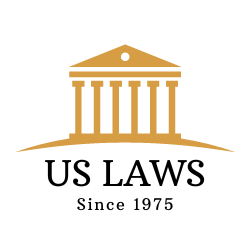What is the U.S. Patriot Act?
The tragedy of September 11, 2001, shocked the public and influenced the formation of completely new U.S. legislation. On October 26, 2001, incumbent President G.W. Bush signed the Patriot Act, which greatly influenced the development of the country in the following years. This bill considerably enhanced the competencies of law establishment and counterintelligence bureaus in the field of surveillance of private life.
In the next two decades, the Patriot Act incurred a strong resonance in American society. Many citizens and free media were against such an important decision, although these changes were necessary.
Prerequisites for the Creation of the Bill
The terrorist assault on 11.09.2001 led to decisive actions from the Presidential administration. A month and a half after the horrific incidents, Congress passed a law. It was aimed at increasing competencies in the field of surveillance, as well as the disclosure of terrorist crimes. In addition, the Patriot Act completed the Law on Wiretapping of Telephone Conversations and subsequent emails and messages.
Execution of the Law
The Patriot Act declared cyber crimes that were related to the leakage data, as well as terrorist offenses. Law establishment officers began to receive court decrees for wiretapping if there were essential reasons for that. This act led to a serious struggle against international terrorism.
The Patriot Act strengthened law enforcement agencies and expanded their powers. We can attribute the following factors to the main features:
- The struggle against illegal monetary transactions;
- The amplification of customs patrol;
- New basis for the arrest and deportation of foreign citizens who are suspected of terrorist activities;
- New grounds for the federal bureau and the police to listen to calls and read emails.
The Patriot Act conflicted with many articles of the U.S. Constitution. That’s why it was decided to extend the law only until 2005.
Extension of the Act
The existence of the Patriotic Law calmed the public a little. However, in the following years, the act was extended many times. The introduction of new amendments made it possible to authorize personal chasing, covert surveillance, and wiretapping of telephone conversations of foreign citizens who were suspected of attempting to commit a terrorist act.
In 2009, efforts were made to weaken the purview of national bureaus and agencies. However, these attempts were unsuccessful, and the Patriot Act was prolonged. The apogee of the whole situation was the posting of revelations from Edward Snowden on social media. As it turned out, the NSA collected mass information on telephone conversations and correspondence on the Internet.
Discussion and Discontent
The Patriot Act was criticized by the media and citizens. They affirmed that the law contradicts the constitution and that federal institutions abused their powers and violated privacy. Society criticized the law for disturbing freedom of speech. In 2015, this act was replaced by the “USA Freedom Act,” which significantly changed the activities of the NSA.
